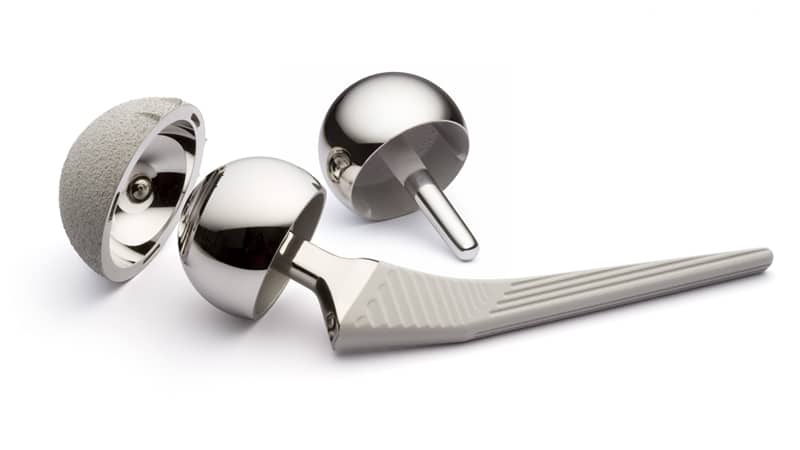If you are trying to develop a medical product or device used in a healthcare sector, you need to be careful when you choose the material for manufacturing. Typically metal, rather than plastic or other material, when you need to replace a biological structure that has been damaged due to trauma or bone or cartilage disorders.
And, metals which are used in medical environments need to meet specific criteria than most of the other products. For example, they need to be non-toxic in the presence of human tissue or fluids. Or, they might have to be resistant to chemicals such as detergents and alcohols which are used for cleaning. They also need to be non-magnetic and non-corrosive in addition to being non-toxic.
Because of many variables, agencies around the world do not certify any raw materials for medical devices as such. As, it is the final product – not the raw material – that is classified. Choosing a bio-compatible material is still the first step towards getting classified.
Here are the most common types of metals and their typical use.
Stainless Steel : Stainless Steel is a well suited metal for the medical industry. It is non-toxic, non-corrosive, durable and can be polished to a very fine finish so that it’s easily cleaned. The most common types of stainless steel used for medical implants and body piercings are 316 and 316L, which are highly corrosion-resistant. This is important because corrosion in the bloodstream can cause infection and possibly even death. Stainless steel is commonly used for orthopedic implants, bone fixations, artificial heart valves etc. It is also used in surgical tools like scalpels, mandrels, tweezers and forceps that has to be durable and also easily cleaned and sterilized. And, stainless steel mesh is sometimes used for intravascular stents.
Copper : For centuries, copper has been known to prevent attachment by living organisms. Copper is believed to affect microorganisms by rupturing the cell membrane of the organism, weakening it and causing copper to obstruct the normal metabolism of the cell. There is a rare direct usage of copper in medical implants. This is because copper is soft and may cause toxicity inside of tissue. However, some copper alloys are still used in dental implants and to prevent infection in bone transplant operations. Because of its outstanding antiviral and antibacterial properties, it is an ideal material for surfaces that are constantly being touched like door handles, railings, faucets etc,. Copper is unique in that more than 400 different copper alloys have been approved by the FDA as biocidal to prevent the spread of viruses like SARS-CoV-2.
Titanium : Titanium possesses a unique ability to bind with bone and living tissue, making it an ideal material for orthopedic implants such as knee and hip replacements. Because of its strength and increased resistance to corrosion, it is well-suited to many other medical instruments, as well in hip and knee replacement surgery, spinal fusion cages etc. Titanium alloys are also great for dental implants. That’s because titanium, like some types of stainless, can be metal 3D printed to create perfectly customized parts from a patient’s scans and X-rays.
Cobalt Chrome : Cobalt-chrome has a very high specific strength and is commonly used in dental implants, and orthopedic implants. Although it’s very hard, cobalt chrome parts can be CNC machined or 3D printed.
Aluminum : Aluminium is widely used in orthopedic, endoscopic, craniomaxillofacial, spine, trauma, surgical and general hospital service equipment. Surgical containers, cases, trays, bins and other aluminium equipment are safer than equipment made of stainless steel or plastic. Since raw aluminum can tarnish or oxidize very easily, aluminum parts are typically painted or anodized for durability.
Magnesium : Within this industry, the use of bio-resorbable implants is increasing, competing with the more traditional titanium implants. Recent developments within the bio-resorbable implants market includes magnesium alloys, which offer new, revolutionary solutions, demonstrating both bio-compatibility and bio-safety. Medical implants can be used in a range of applications, such as vascular stents and bone graft surgery. Bio-resorbable materials are advantageous for use throughout the medical device market because they offer a steady resorption rate and can help achieve optimum healing within the body.
